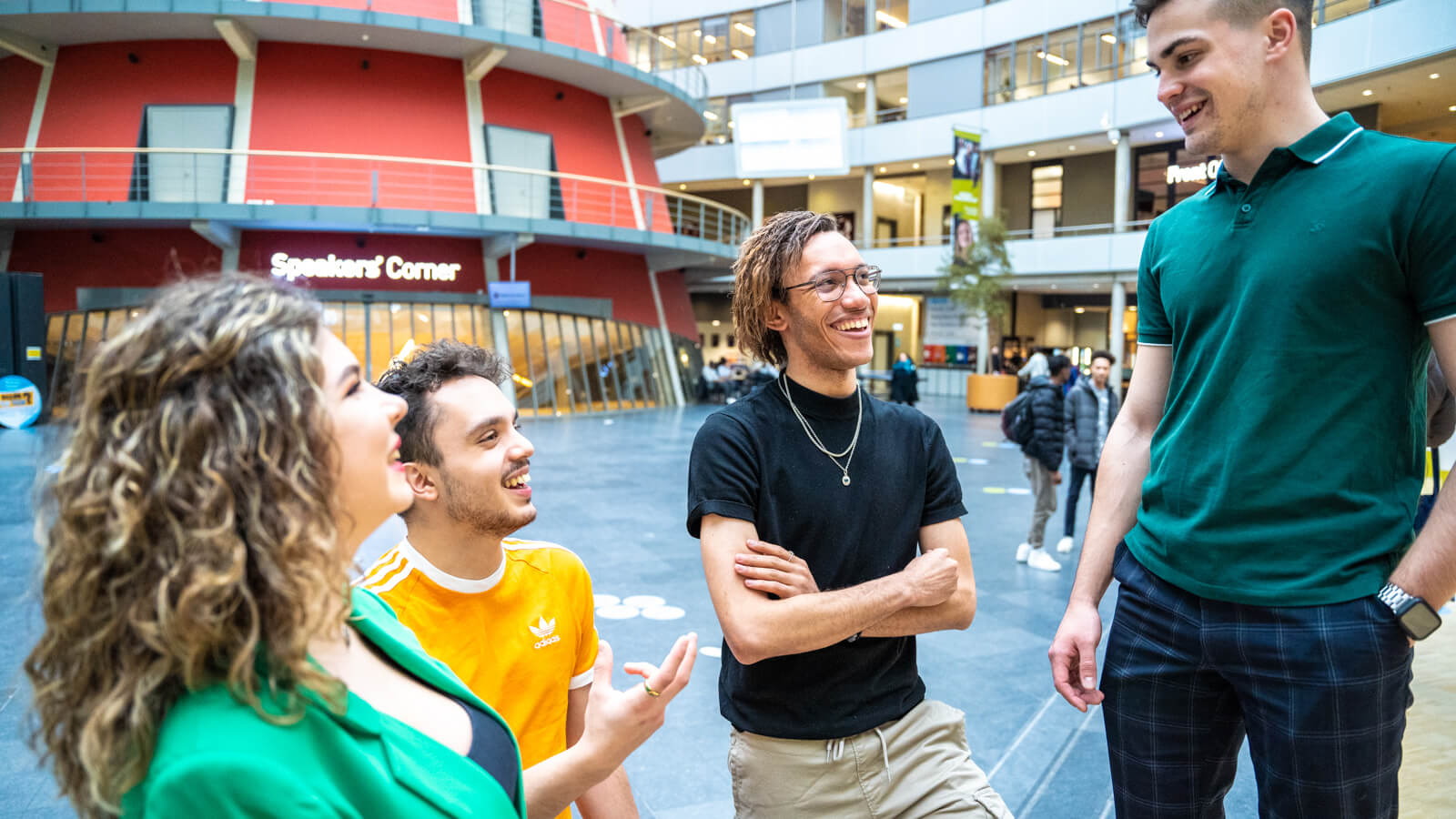Wellbeing Week aims to improve student wellbeing with diverse programme
From Monday 22 to Saturday 27 March included, the Wellbeing Week will be organised at The Hague University of Applied Sciences for you and all other students. The programme offers many activities, digital as well as physical (in two languages). The coordinator Fee Romein likes to address the target group directly in her work: “We would like to show you how you matter during this week. That we know what you are struggling with. And we hope that this week will give the opportunity to start a movement, where you, along with so many other students, can tell us what you need.”
The Hague University of Applied Sciences uses the study advance funds to improve your education. How we will do this is described in the THUAS Quality Agreements. A part of this money will be used to improve the wellbeing of the students in these difficult times. The Wellbeing Week is a beautiful example of this. Such a week is extremely necessary, Fee Romein stated. “Students already experienced a pressure to perform even before the pandemic. Their situation has only become more difficult over the past year. In the coming Wellbeing Week we want to support them. We hope that as many students as possible will participate. We would like to use their contribution and reviews for the next Wellbeing Week in November.”
Students less in the picture
Fee and many other colleagues outside the University of Applied Sciences are worried that students are literally and figuratively less visible. Fee: “As a student, you have not gotten the opportunity to build a strong network yet. And if you do have a strong network already, it is more difficult to get in touch due to the restrictions. Of course our main job as a university of applied sciences is to teach. But along with the teaching duty, we also have a caring duty. As far as I am concerned, that should be given priority now.” ‘But along with the teaching duty, we also have a caring duty. As far as I am concerned that should be given priority now’
This caring duty can be interpreted in several ways. “As Policy Staff Member I would like to dedicate a couple of hours every week to call students. Students who are not feeling well, experience difficulties drawing attention to the issues they are having. At the same time they appreciate the proactivity of the University of Applied Sciences. Sometimes all it takes is a call: How is it going with you? How are you holding up?”
Several programmes
For the Wellbeing Week, Fee and her team, along with the students, have created several programmes together. “As a student you can improve your skills in workshops. Or participate in (physical) sport activities. There will be moments of relaxation, with yoga for example and/or cook and eat with other students in a cosy atmosphere. But these programmes offer also workshops focused on the less happy times of this period. How do you deal with stress and pressure at home? With loss and grief? You can sign up for a mindfulness training or a study happiness workshop. Or you can have your headphones on for a so called ‘walk-talking’ activity outside. A genuinely nice initiative is also ‘fast friends’, where you can meet other people and together – in pairs – you can go outside for a walk or a bicycle ride and get to know each other better.”
Start of a movement
After the Wellbeing Week the students’ wellbeing will still be a point of focus. Fee tells us that the University of Applied Sciences will organise quality research into the student counselling on didactics and personal matters. “Based on the results, we will adjust and improve the counselling where necessary. We will also start working on student wellbeing based on the results of the NSE. We will do everything we can to get a better overview of how we can improve the students’ wellbeing. Organising the Wellbeing Week is only a part of it. I would like to ask our students to do the following: please participate in the wellbeing week and join the movement afterwards where you and your fellow students share what you need to be able to learn better.”
